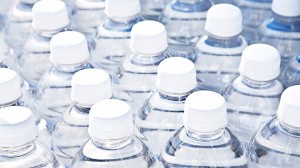6 Ways to Stay Hydrated When Training in Hot Weather
 Running in hot, humid weather can be extremely arduous. However, with some proper planning and a little preparation, you can survive running in the heat. Here are six tips to staying hydrated when you train or race in hot weather:
Running in hot, humid weather can be extremely arduous. However, with some proper planning and a little preparation, you can survive running in the heat. Here are six tips to staying hydrated when you train or race in hot weather:
1) Hydrate all day
Proper hydration is achieved by consistently consuming water and electrolytes every day from the time you wake up until shortly before your bedtime. It is not something you do only right before, or during, or after your activity. Your body needs to adapt to an increase in water intake so it is imperative not to suddenly flood the body with water. Doing so will only result in the excess water running right though your system rather than being absorb into the body.
2) Run at the right times
The afternoon generally is the hottest time of the day, so try to avoid the hottest times when you’re acclimating to the heat (more on this later).
Further, if you don’t plan your runs appropriately around your lunchtime, you can quickly become hypoglycemic (if you run right before lunch) or nauseous (if you run right after lunch). If you can only run during your lunchtime, then the best way to do it is before you eat however take a gel or have a banana before you run to avoid hypoglycemia and still not have a full stomach to cause nausea.
3) Wear appropriate clothing
Many people think that wearing less clothing and no hat in hot weather is a good idea for staying cool. This is not always true. If you have dark hair, wearing a white mesh cap can actually be cooler, especially if you have the ability to keep the hat wet or even put ice in it every now and then during your run. Additionally, there are several clothing companies that have created technical fabrics that actually activate cold when combined with your sweat or water. This can keep you significantly cooler than a shirtless or near shirtless body.
4) Wear sunscreen
In addition to blocking harmful UVA and UVB rays from the sun, sunscreen also helps prevent sunburn. While that likely sounds obvious, what is less intuitive is that once your skin begins to sunburn, it actually begins to get hotter and, depending on the degree of sunburn, can actually inhibit your production of perspiration leading you to overheat.
5) Consume electrolytes
Consuming 16-20oz of an electrolyte beverage per hour during physical activity in abnormally hot weather is a good starting point. Depending on your perspiration rate and body type, you may need to adjust that amount. As a general rule, it is better to have to go to the bathroom on your run than it is to have to go to the hospital. So drink up.
Another fantastic addition or replacement to electrolyte beverages is to consume an electrolyte supplement (generally in a pill or tablet form) with your water. What electrolyte supplements do is help ensure you maintain a good electrolyte balance and also prevent hyponatremia–a condition when blood sodium is too low which can be a result of excessive hydration.
6) Acclimate to the heat
Avoid doing relatively long runs the first few times of running in hot and humid weather. Your body can and usually will adapt to high temperatures so try to do your shorter mid-week runs in the heat, then you have a better chance at successfully completing much longer distances in the heat.
Finally, remember this: you never know what the weather on race day will be so be sure to train in all types of weather if you have the opportunity. If you have runs planned on certain days at certain times, then do them rain or shine. It will not only help your body adapt to different environmental conditions, but it will also provide your mind with the confidence on race day no matter what weather conditions you encounter.
